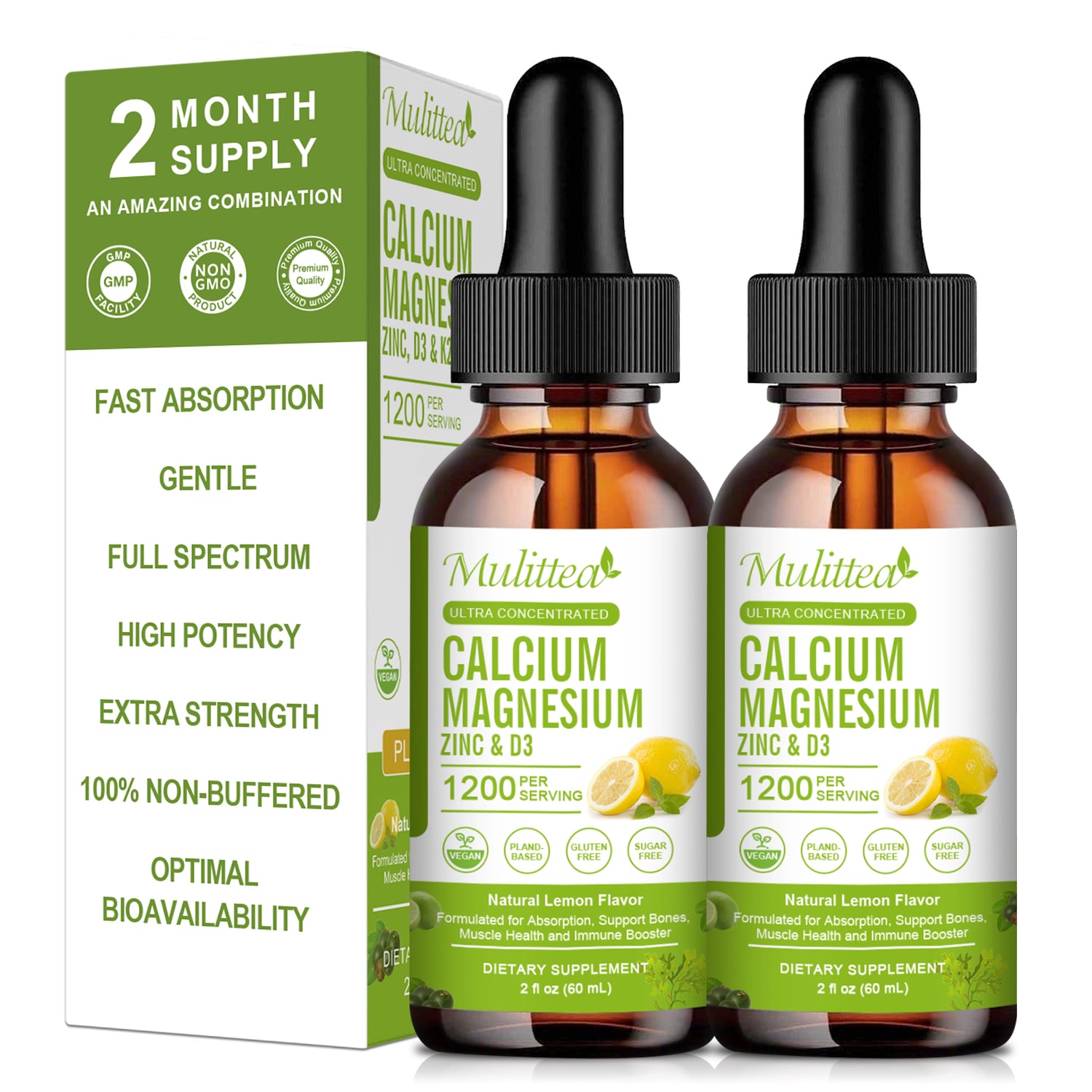
10 Science-Backed Ways to Support Joint Health Naturally
Share
Joint health isn’t just a concern for older adults—it’s important at every stage of life. Long office hours in your 20s, active workouts in your 30s and 40s, or simply wanting to stay mobile and independent as you age—all of these put different demands on your joints. Supporting joint health early with the right habits, nutrition, and supplements can make a lasting difference in how well you move and feel.
In this article, we’ll explore ten science-backed ways to keep your joints healthy, while answering common questions people ask about nutrients like calcium, magnesium, zinc, glucosamine, and vitamin D3 + K2.
1. Stay Active with Low-Impact Movement
Exercise is one of the most reliable ways to support healthy joints. Low-impact activities such as swimming, yoga, cycling, and brisk walking strengthen the muscles around your joints without placing too much stress on them. Over time, these habits help maintain mobility and protect delicate structures like knee cartilage.

2. Maintain a Healthy Weight
Carrying excess weight places added stress on your knees, hips, and lower back. Even a few extra pounds can significantly increase the load on weight-bearing joints, contributing to discomfort and reduced mobility. A balanced diet combined with consistent activity supports a healthy weight and protects your joints over time.
3. Prioritize Posture and Daily Habits
Ergonomics matter. The way you sit, stand, and move every day affects joint health more than many realize. Poor sitting posture at a desk or lifting with the wrong form can stress your spine, shoulders, and hips. Adjusting your chair height, standing up to stretch, and practicing mindful movement during workouts help protect your joints from wear and tear.
4. Nourish Your Joints with the Best Diet for Joint Health
A balanced diet rich in antioxidants and anti-inflammatory foods supports long-term wellness. Leafy greens, berries, fatty fish, and whole grains provide nutrients that help your body manage inflammation. Protein is also essential for muscle and cartilage support. For vegetarians, adding collagen-rich foods vegetarian options such as beans, soy, and seeds can help provide building blocks for joint tissue.
5. The Power of Calcium, Magnesium, and Zinc
Minerals play a central role in bone and joint health. Together, calcium, magnesium, and zinc support bone strength, muscle function, and tissue repair.
What is calcium magnesium and zinc good for?
These nutrients work as a team to support strong bones, healthy cartilage, and overall mobility.
Can you take magnesium and calcium together?
Yes. Magnesium helps regulate calcium balance in the body, and zinc supports tissue growth. Many people choose a calcium magnesium and zinc supplement for convenience.
Does calcium help arthritis?
Calcium supports bone strength, which is important for anyone with aging joints.
Does magnesium help arthritis? / Does magnesium help with joint pain?
While magnesium does not treat arthritis, it contributes to muscle relaxation and nerve function, which can help with overall joint comfort.
Is zinc good for gym?
Zinc supports muscle recovery and energy metabolism, making it relevant not just for joint health but also for active lifestyles.
Some supplements also combine calcium magnesium and zinc with vitamin D3, maximizing absorption and effectiveness. Supplements like Mulittea Calcium Magnesium Zinc Gummies combine these minerals in one convenient formula, supporting bone and joint health as part of your daily routine.

6. Glucosamine and Chondroitin for Cartilage Support
Cartilage acts as a cushion between bones, but with age or repeated stress, it can wear down. Glucosamine and chondroitin are compounds found naturally in cartilage and have been widely studied for their role in supporting joint structure and comfort. Research suggests that they may help maintain the integrity of knee cartilage and promote smoother movement over time.
Many people find glucosamine chondroitin gummies a convenient way to include these nutrients in their daily routine. Mulittea Glucosamine Chondroitin Gummies or Glucosamine Chondroitin MSM Liquid Drops provide options for those looking to support cartilage health with a flexible supplement format.
7. Vitamin D3 and K2: Partners in Bone and Joint Support
These vitamins work together in a unique way. Vitamin D3 helps your body absorb calcium efficiently, while vitamin K2 ensures that calcium is directed to bones rather than soft tissues.
What does D3 and K2 do?
Together, they promote strong bones and balanced calcium distribution.
Vitamin D3 K2 benefits
Their synergy not only supports bone density but also contributes to cardiovascular health, making them essential for overall well-being.
For those who may not get enough sun exposure or dietary vitamin K2, Mulittea Vitamin D3 K2 Softgels provide a convenient way to support bone and joint health naturally.
8. Stay Hydrated: How to Lubricate Joints Naturally
Water plays a role in keeping cartilage soft and joints well-lubricated. Dehydration can contribute to stiffness, so staying hydrated throughout the day is one of the simplest ways to support joint comfort.
How to lubricate joints naturally?
Hydration is key, but healthy fats from sources like olive oil, avocados, and fish can also support the body’s natural joint lubrication.
9. Rest, Sleep, and Stress Management
Quality sleep allows the body to repair tissues, while stress management helps regulate inflammation. Mindfulness, stretching before bed, and relaxation practices like meditation can all contribute to joint recovery and comfort.
10. Avoid Harmful Habits
Smoking and heavy alcohol intake can negatively impact bone and joint health. These habits may interfere with nutrient absorption and long-term mobility. Replacing them with healthier choices helps your body better utilize the nutrition and supplements you take.
Conclusion: Supporting Joint Health Naturally
Caring for your joints is a lifelong commitment—and it’s never too early to start. By staying active, eating a joint-friendly diet, and considering science-backed supplements like calcium magnesium and zinc vitamins, glucosamine chondroitin, and vitamin D3 K2, you can support flexibility and mobility at every stage of life.
For those looking for convenient options, Mulittea offers products such as:
- Glucosamine Chondroitin MSM Liquid Drops
- Glucosamine Chondroitin Gummies
- Calcium Magnesium Zinc Gummies
- Vitamin D3 K2 Softgels
The journey to healthy joints is about making consistent choices today that will keep you moving tomorrow.

